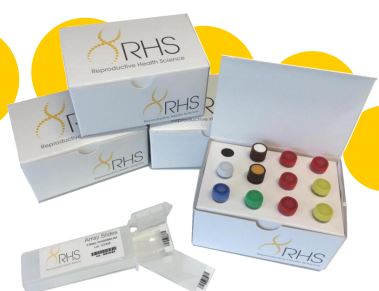
PGS – Preimplantasyon Genetik Tarama Mikroarray Kiti

Whole chromosome aneuploidy has been shown to affect all chromosomes in IVF embryos. Aneuploidy is a significant cause of IVF failure, especially in women of advanced maternal age.
Clinical studies show higher SET pregnancy rates with PGS
Pre-implantation Genetic Screening (PGS) Initial attempts to detect aneuploidy in IVF embryos used FISH screening for a limited subset of chromosomes (5-12 chromosomes only). Clinical data from these first attempts showed no
benefit to IVF success rates.
This has changed dramatically since the introduction of advanced 24 chromosome preimplantation genetic screening (PGS). PGS now assesses the loss or gain of any whole chromosomes.
PGS has been demonstrated to:
- reduce the time to pregnancy;
- reduce the incidence of miscarriage;
- achieve comparable single embryo transfer clinical pregnancy rates to unscreened multiple embryo transfer
- allow the selection of unaffected embryos for vitrification (freezing) avoiding the storage of aneuploid embryos;
- overcome the maternal age impact on IVF success.
98 percent of aneuploid embryos fail to implant
HOW EMBRYOCELLECT™ WORKS
EmbryoCellect™ has been designed to specifically screen for whole chromosome aneuploidy. It uses array Comparative Genomic Hybridisation (aCGH) to compare the number of chromosomes from a sample cell to a known reference sample. The samples are labelled and the relative fluorescence is measured for each chromosome by hybridisation to the EmbryoCellectTM microarray.
 Türkçe
Türkçe